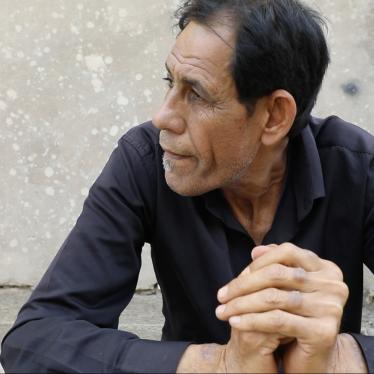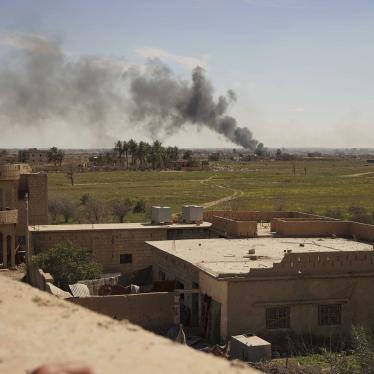Italy has taken a step towards accountability for abuses committed during the US “war on terror.” After years of investigations, trials, and appeals, Italy’s Court of Cassation, the highest criminal court, upheld yesterday the convictions of three CIA agents, including the former Italy CIA chief Jeff Castelli, for the 2003 kidnapping and rendition to torture of an Egyptian cleric.
The ruling, which brings to a close the only successful prosecution of the CIA’s illegal rendition program during the Bush administration, clarifies that these crimes are not covered by diplomatic immunity.
Osama Moustafa Hassan Nasr, known as Abu Omar, was bundled into a van on a Milan street in February 2003 and flown from the US Air Force base in Aviano, Italy to Egypt via a US base in Germany. Abu Omar alleges that he was tortured repeatedly during the nearly four years he spent in Egyptian custody. He was released from prison without charge in February 2007.
In 2009, a Milan court convicted, in absentia, 23 US citizens and two Italians. The court found that Castelli and the other two CIA agents were entitled to diplomatic immunity, a finding later reversed on appeal and now definitively quashed. The Court of Cassation upheld, in September 2012, the convictions of the other 23 US nationals.
None of the 26 US citizens are likely to serve any prison time. The Italian government never sought their extradition for trial, and has issued an international arrest warrant only for Robert Seldon Lady, the former Milan CIA bureau chief who received a nine-year sentence. Lady was briefly detained in Panama in July 2013, then released.
While Italy’s courts rightly rejected diplomatic immunity, they did accept arguments that state secrecy laws shield Italian intelligence officers from accountability. On February 24, 2014, the Court of Cassation overturned a 2013 appeals court conviction of five Italians in the case, including the former head and deputy head of the military intelligence service SISMI, after the Constitutional Court ruled in January that part of the case against them was subject to state secrecy.
State secrecy should never protect officials responsible for grave human rights violations. And in absentia trials raise fair trial concerns. Nevertheless the Abu Omar case in Italy stands in stark contrast to the failure of the USand other European countries to hold anyone criminally accountable for terrible abuses in the name of fighting terrorism.










